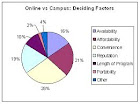U.S. Secretary of Education Arne Duncan joined education leaders from twenty-three high-performing, rapidly-improving countries in New York City last week. Over the course of two days, each country shared ideas and successful, innovative practices for teacher preparation and school leader development during the second-ever International Summit on the Teaching Profession.
Just last year, the Department held the first Summit, bringing together not just national education ministers, but also union leaders in partnership with teachers, and education experts to help to shape the conversation. Through a public discourse, participants identified common challenges in education across different countries and cultures while also laying out the need for systematic reform.
The lessons learned from the practices of high-performing systems during last year had a big impact in the United States. It helped lay the groundwork for a new Obama Administration project called RESPECT, which stands for Recognizing Educational Success, Professional Excellence, and Collaborative Teaching.
Certain practices and policies were repeated throughout the Summit like the need to attract talent to education through competitive pay scales and career-ladders; the benefits of providing support through school-to-school, principal-to-principal, and teacher-to-teacher networks; and the large-scale value of identifying high-level, common standards that are consistent from pre-K through high school in order to prepare students for college and careers.
With these great challenges come great opportunities. Engaging with international education leaders has contributed valuable insight and input that will help the U.S. continue our work to elevate our nation’s education system. Accomplishing this broad, imperative goal will depend on our ability to attract and retain great talent over the short term so the U.S. can effectively shape public education for generations to come.




